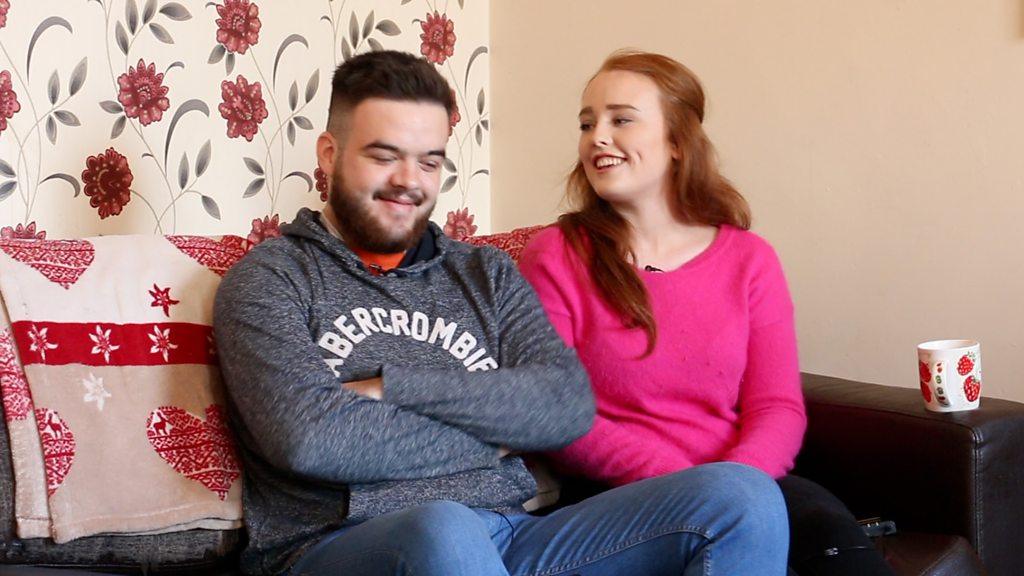Irish border problem is a 'red herring', says DUP MP
- Published
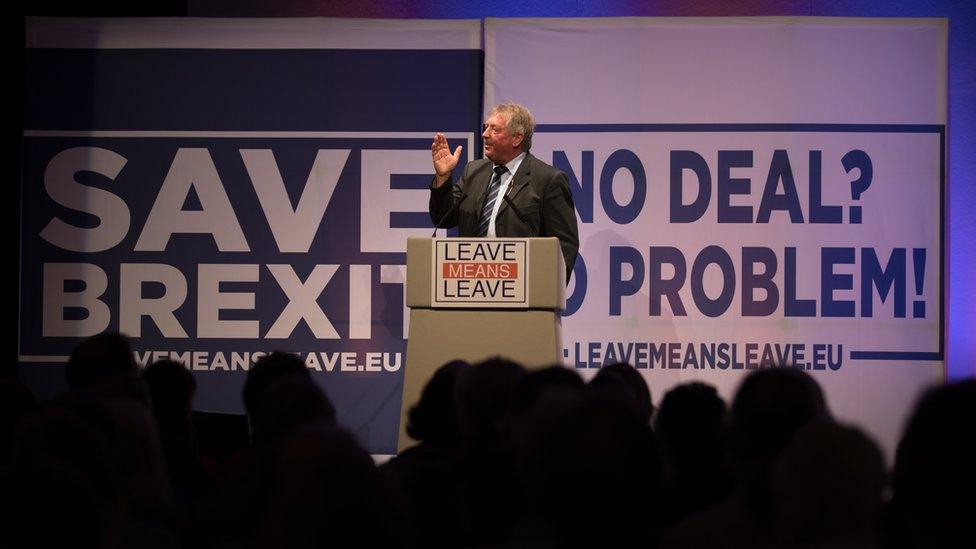
DUP politician Sammy Wilson is an ardent Brexit supporter
The big sticking point in the Brexit negotiations has been described as a "red herring" by one of the 10 Democratic Unionist MPs propping up Theresa May's minority government.
Sammy Wilson told the BBC World Service there was no "real problem".
The EU says there must be an arrangement to prevent physical checks on the 310-mile border between Northern Ireland and the Republic of Ireland.
So far, London and Brussels have failed to settle the issue.
This raises the prospect of the UK leaving the EU with no deal in March 2019.
Mr Wilson, the Democratic Unionist Party's (DUP) MP for East Antrim and the party's Brexit spokesman, said: "This is a red herring that's been thrown in to either string out the negotiations until there's a change in government in the UK, or to make the price of leaving the EU the break-up of the UK, or to keep the UK in the customs union and the single market".
The MP pointed to comments from the Irish Taoiseach (prime minister), Leo Varadkar, who said he had been given assurances about the border by the European Commission president Jean-Claude Juncker.
In July Mr Varadkar said: "President Juncker and my EU colleagues have on many occasions said that they wouldn't require us to put in place a physical infrastructure and customs checks on the border between Northern Ireland and Ireland."
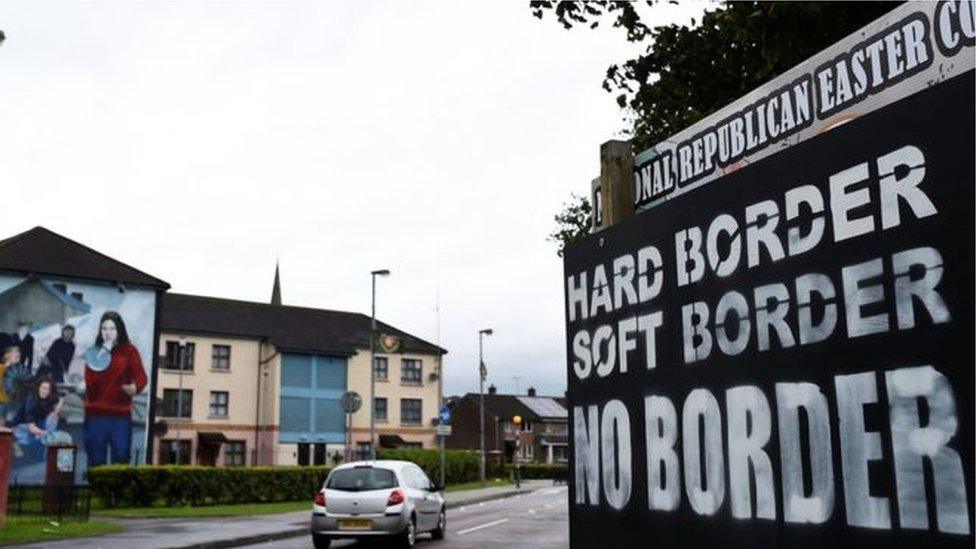
A customs union would go a long way to ensuring the Irish border remains "soft"
President Juncker's office refused to say whether he had made such an assurance, saying simply it would not comment on the ongoing negotiations.
Sammy Wilson added: "There's no real problem, as the EU have now confirmed. If they say in the event of no deal, we'll not be putting up any border, then what's the issue?"
A spokesperson for the Taoiseach said: "The British government, the Irish government and the European Union have all made clear, repeatedly, their determination to avoid a hard border on the island of Ireland following the UK's withdrawal from the EU."
So why all the discussion then?
The EU wants a so-called backstop arrangement, an insurance policy, to ensure the border on the island of Ireland continues to be open if the UK and EU can't agree a future trade deal or a technological solution.
That could include keeping Northern Ireland in the EU customs union and tied to some rules of the single market.
Theresa May has previously said any proposals for a common area across the Northern Ireland border would "undermine the UK common market and threaten the constitutional integrity of the United Kingdom".
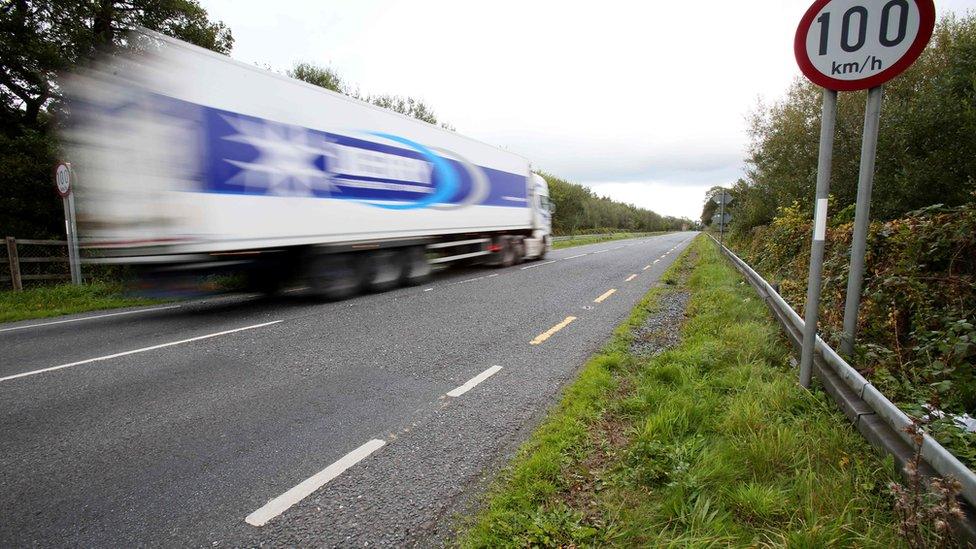
The EU wants a backstop arrangement to ensure the border continues to be open
And DUP MPs have warned they would vote against any Brexit deal that treats Northern Ireland differently to the rest of the UK.
"We don't want to change the government; we simply want to change its policy.
"If that means the current leader falls by the wayside, that's an issue for the Conservative Party, not for us," said Mr Wilson.
Ireland's deputy prime minister, Simon Coveney, told the BBC in October that the UK must stick to promises around the border backstop that it made last year, saying, "Britain has signed up to in writing... a backstop".
"We do need to insist on the commitments the prime minister has made to Ireland and to the EU around providing guarantees there could never be physical border infrastructure," he said.
"There needs to be a backstop unless and until something better can be negotiated," Mr Coveney said.
When discussing Theresa May's agreement to a backstop for Northern Ireland last year, Sammy Wilson said, "The mind boggles that anyone can be so stupid".
Theresa May recently said 95% of the Brexit deal has been agreed.
Sammy Wilson said that claim should be treated cautiously.
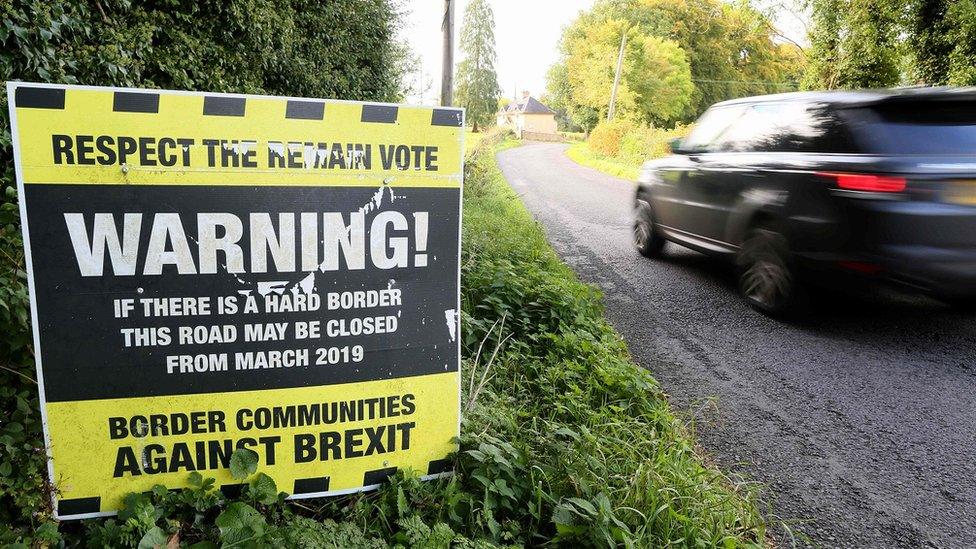
The Irish government wants to avoid a hard border
"Although the prime minister might think she's 95% of the way there, the captain of the Titanic thought he was 95% of the way to his destination.
"He didn't quite reach it because an iceberg hit them on the way there. There are huge icebergs sitting in the way of this deal at present," he said.
At the moment, people, goods and services move freely across the land border in Ireland.
The UK and Ireland are both part of the EU, so products do not need to be checked to make sure they comply with customs and standards rules.
If there is no Brexit deal, companies exporting goods to the EU "will be required to follow customs procedures in the same way that they currently do when exporting goods to a non-EU country," according to UK government advice for businesses, external.
A lot of this work would be done electronically, away from the border.
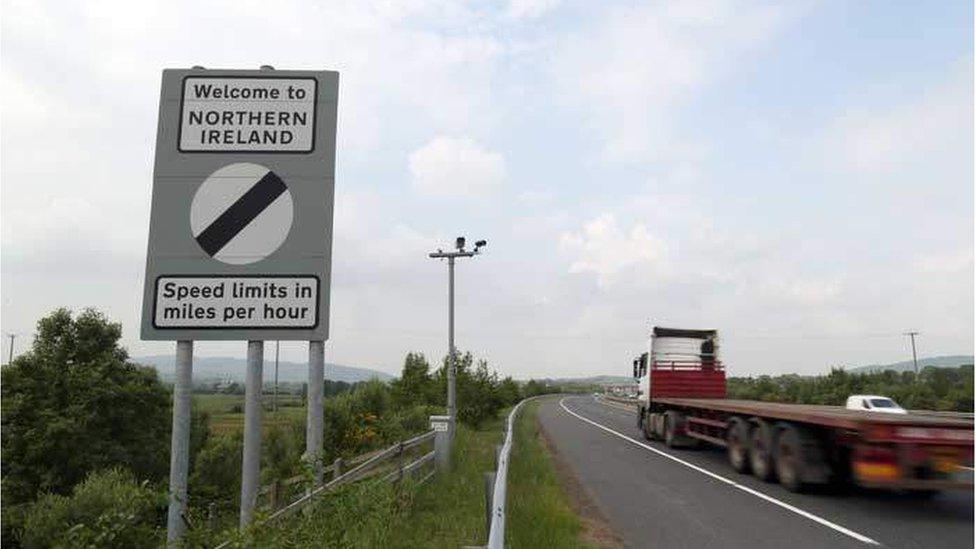
Technical talks in recent weeks have covered customs, the regulation of goods and the rights of individuals
The guidance says exporters will need to apply for a UK Economic Operator Registration and Identification (EORI) number, consider engaging the services of a customs broker, submit export declarations to HMRC and apply for any relevant export licences.
The Irish Revenue has issued similar advice to companies about new customs processes.
"In the post-Brexit era the administrative and fiscal burden on the traders involved cannot be underestimated," an advice document states, external.
Under World Trade Organisation rules, countries cannot normally discriminate between their trading partners unless there is a formal trade deal.
So a no-deal Brexit would mean, for example, that Irish products would have to be treated the same way as goods from the US or China.
"Grant someone a special favour and you have to do the same for all other WTO members," says the organisation, external.
That reduces the ability of the UK and the Republic of Ireland to treat each other's products more favourably than those from other nations.
That is why talks about the Irish border are seen as so important.
- Published3 November 2018
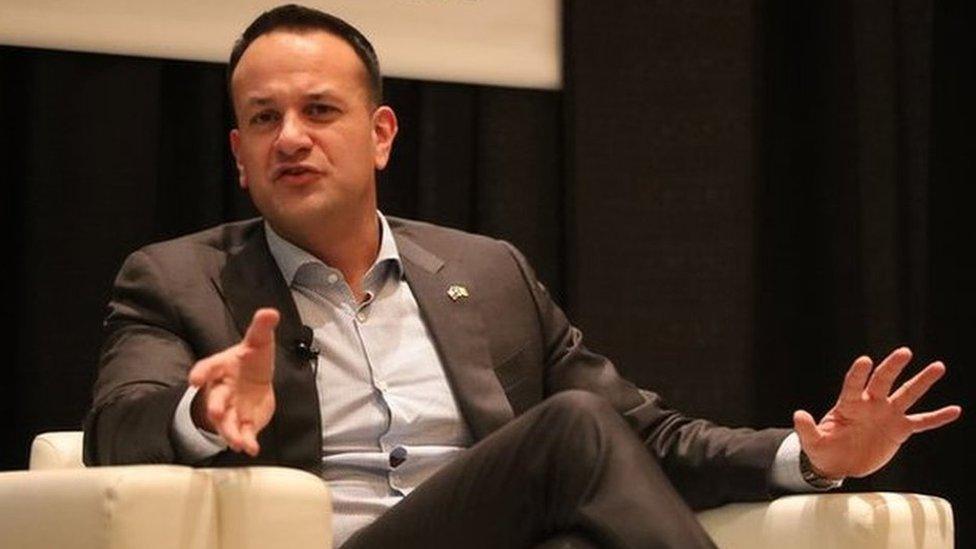
- Published3 October 2018
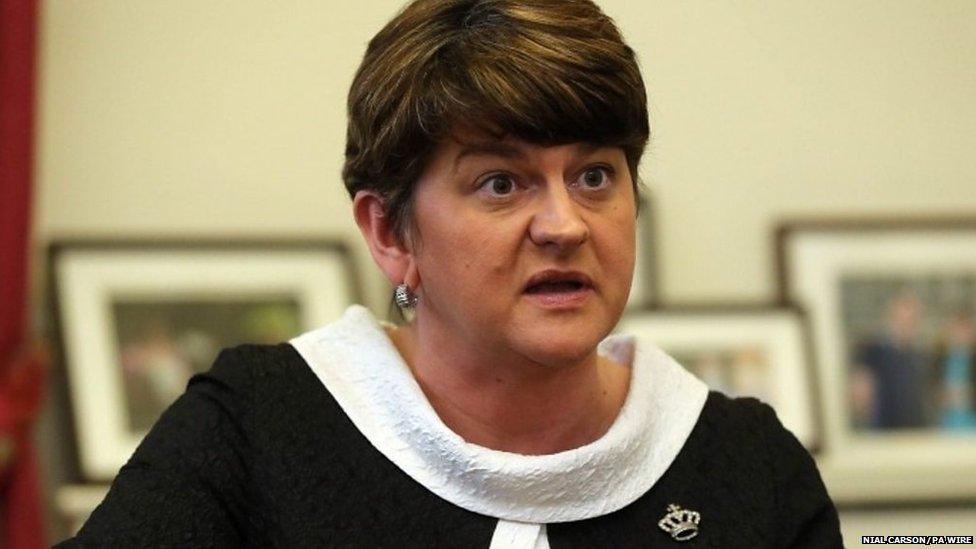
- Published21 September 2018
